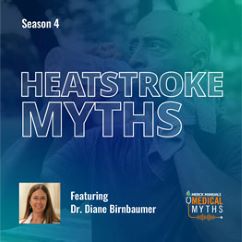Heat exhaustion is 1 of several types of heat disorder.
Heat exhaustion is more severe than heat cramps. Fluids and salts are more depleted, and symptoms are more severe. Heat exhaustion may progress to heatstroke if people continue to be exposed to excessive heat.
Symptoms of Heat Exhaustion
Symptoms of heat exhaustion tend to be vague and similar to the symptoms of many other illnesses. People may not realize that their symptoms are related to the heat. Symptoms include:
Excessive thirst
Muscle aches and cramps
Dizziness
Light-headedness
Weakness
Fatigue
Headache
Blurred vision
Nausea
Vomiting
Muscle cramps may occur but often do not. People may feel faint or even lose consciousness when standing. Drenching sweats are common. The heart rate and breathing rate may become rapid. Blood pressure may become low.
Unlike in heatstroke, confusion and incoordination do not occur in heat exhaustion. Also, body temperature is usually normal and if it is high, it is generally not higher than 104° F (40° C).
Diagnosis of Heat Exhaustion
Symptoms and a history of exposure to heat
Heat exhaustion usually is diagnosed on the basis of the symptoms and occurrence after exposure to heat. Laboratory tests may be needed if doctors suspect a diagnosis other than heat exhaustion, or sometimes to measure the levels of sodium in the blood of people who may have drunk too much plain water.
Treatment of Heat Exhaustion
Rest in a cool environment
Replace fluids and salts
Treatment of heat exhaustion involves rest (stopping activity), removing people from the hot environment, and replacing fluids and salts, either by mouth (with a sports drink or a solution of 2 teaspoons [10 grams] of salt dissolved into 1 quart [about 1 liter] of water) or intravenously. Removing or loosening clothing and wetting the skin or applying wet cloths can also aid cooling.
After receiving fluids, people usually recover rapidly and fully.


